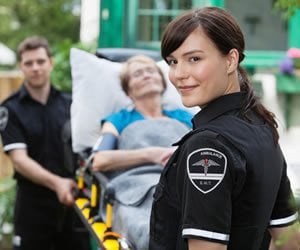
Five Simple Tips for a Better Personal Statement
The personal statement is, for many, one of the most dreaded aspects of the medical ... Read more
Written by: Brent Schnipke
Published on: July 31, 2015
Articles applicable to all pre-health students, including extracurricular planning, general study tips, and interview prep.

The personal statement is, for many, one of the most dreaded aspects of the medical ... Read more
Written by: Brent Schnipke
Published on: July 31, 2015

For some undergrads, this summer will be spent lounging on the beach reading and hanging ... Read more
Written by: Paris Grey
Published on: July 15, 2015

Writing a personal statement for professional school can be a daunting experience. This article will ... Read more
Written by: Natalie Blake
Published on: June 17, 2015

Mark Twain “The physician who knows only medicine, knows not even medicine.” Ahhh, spring! A ... Read more
Written by: Dagmar Cofer
Published on: March 24, 2015

Are you ready to become a doctor? Making the transition from undergraduate to medical school ... Read more
Written by: Marissa Sutera
Published on: February 20, 2015

Life as a med student is a blur of tests and clinicals with many nights ... Read more
Written by: Shire Lyon
Published on: February 2, 2015

Updated September 30, 2021. The article was updated to correct minor grammatical errors and to ... Read more
Written by: AAMC Staff
Published on: December 3, 2014

It’s no secret that medical school can be draining. Although it can be draining in ... Read more
Written by: Brent Schnipke
Published on: October 24, 2014

Strong interview preparation allows you to give meaningful thought to what qualities you bring to the table and why you might be a good fit for a particular school.
Written by: Deborah Gutman, MD, MPH
Published on: August 25, 2014

There are a number of ways you can gain clinical experience for your medical school application while earning money at the same time.
Written by: Deborah Gutman, MD, MPH
Published on: July 14, 2014

Writing a personal statement is challenging, but these tips can get you headed in the right direction.
Written by: Megan Riddle
Published on: June 2, 2014

Make the most of your summer to round out your medical school applications.
Written by: AAMC Staff
Published on: May 7, 2014

Tips on how to meet and build relationships with people who can advance your education and career.
Written by: Megan Riddle
Published on: March 6, 2014

How to stand out when preparing your application for professional school.
Written by: David R Rice DDS
Published on: November 12, 2013
“Dear Mr. [Last name], We regret to inform you….” Brutal. I wasn’t quite rejected. I had gotten the deferral-letter-of-death.
Written by: InGenius Prep
Published on: October 3, 2013
Answering a common but challenging interview question.
Written by: Rajani Katta and Samir Desai
Published on: July 17, 2013

If you want to become a physician, you have a job to do even before ... Read more
Written by: SDN Staff
Published on: April 5, 2013
Expert tips to make your personal statement stand out.
Written by: Michelle Finkel
Published on: March 12, 2013
What is a multiple mini-interview and what should you do to be ready?
Written by: Jeremiah Fleenor
Published on: February 6, 2013